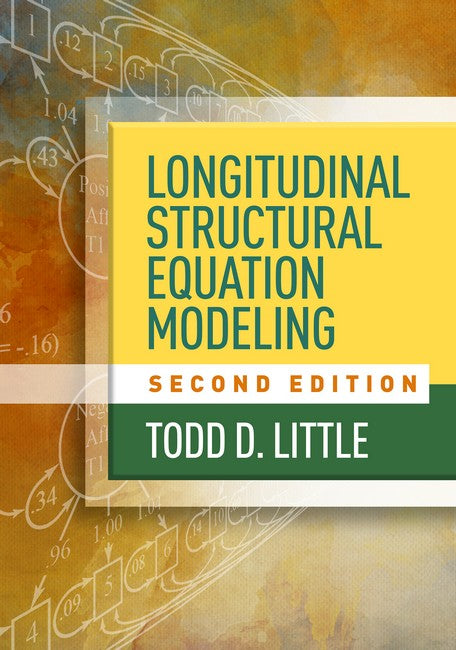Todd D. Little, PhD, is Professor of Educational Psychology, Leadership, and Counseling at Texas Tech University, in the Research, Evaluation, Measurement, and Statistics program. He is also an Extraordinary Professor at the Optentia Research Focus Area, North-West University, Vanderbijlpark, South Africa. Dr. Little is a Fellow of the American Association for the Advancement of Science; the American Psychological Association (APA) Divisions 5, 7, and 15; and the Association for Psychological Science. He is editor of Guilfords Methodology in the Social Sciences series and past president of APA Division 5 (Evaluation, Measurement, and Statistics). Dr. Little organizes and teaches in his renowned "Stats Camp" (statscamp.org) each June. Partly because of the impact and importance of Stats Camp, Dr. Little was awarded the Cohen Award for Distinguished Contributions to Teaching and Mentoring from APA Division 5 and the inaugural Teaching and Mentoring Award from the Society for Research in Child Development.
Request Academic Copy
Please copy the ISBN for submitting review copy form
Description
"In its second edition, this remains the definitive text on longitudinal SEM. The biggest strength of all the chapters is that they follow a clear organization and flow. Basic issues are presented first, followed by more advanced issues, and, finally, an example or two of the topic, with real data."--Kristin D. Mickelson, PhD, School of Social and Behavioral Sciences, Arizona State University "Longitudinal SEM is tricky, even for people who have experience with factor analysis and other related models. I recommend the second edition of this book to applied researchers looking for a nontechnical overview. It will help readers build their intuitive understanding of the models, which can provide a foundation for future study."--Ed Merkle, PhD, Department of Psychological Sciences, University of Missouri-Columbia "This is a good core textbook for an advanced course in SEM. It can even be used as a text for an introductory SEM course--as I, myself, have done with the first edition--with a bit of supplementary material. What is special about this book is the extensive use of examples, the end-of-chapter summaries (including definitions), and the detailed discussion of many problems, issues, and controversies--such as whether parceling makes sense, or how to deal with convergence issues or with longitudinal data attrition--not treated extensively in other texts."--Douglas Baer, PhD, Department of Sociology (Emeritus), University of Victoria, British Columbia, Canada "The equation boxes are a really nice touch that make it easier for readers to decipher the content in the equations. I am used to seeing notation detailed in paragraph-style text under an equation, but I am sold--this is a much clearer presentation style."--Sarah Depaoli, PhD, Department of Psychological Sciences, University of California, Merced-

